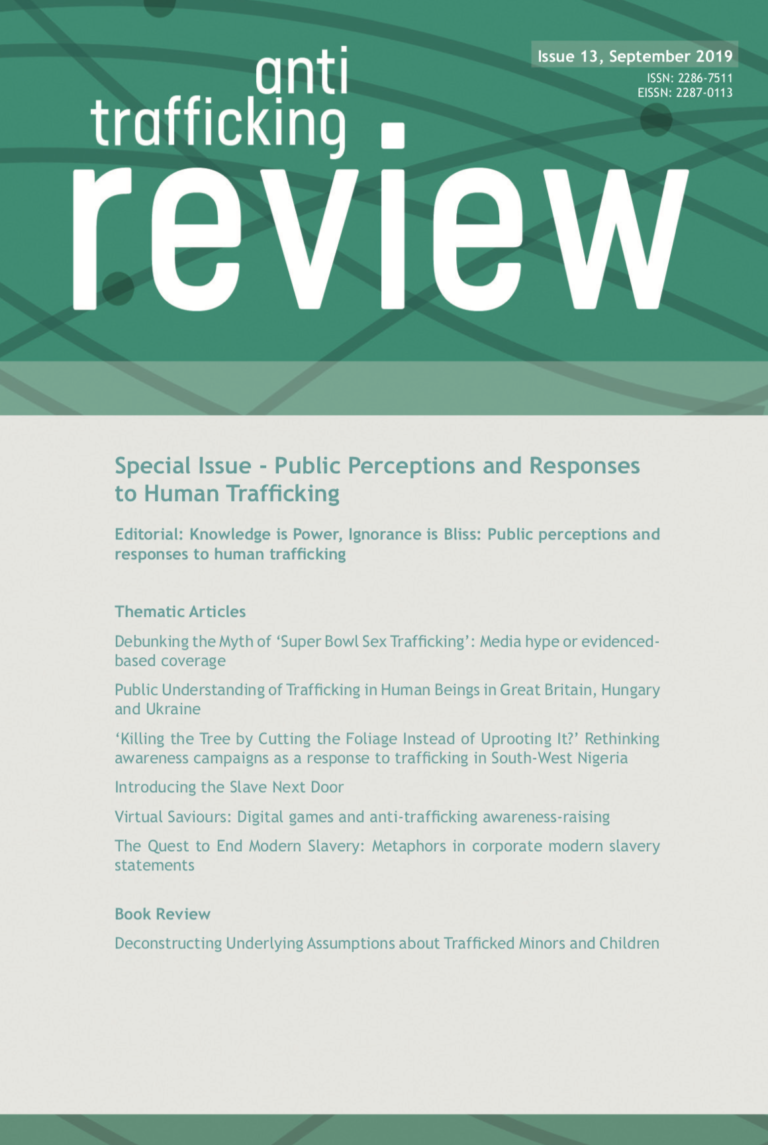This Special Issue of the Anti-Trafficking Review reflects the growing unease and disagreements among anti-trafficking practitioners and scholars about the current state of public awareness and perceptions of human trafficking: how and by whom they are produced and manipulated and whether they lead, or can lead, to any meaningful anti-trafficking action. Taken together, the articles converge around one central message: overall, public perceptions of human trafficking—whether created by the media, NGOs, governments or corporations, and conveyed through campaigns, apps, newspapers or corporate statements—remain incomplete and, often, misleading regarding the nature of trafficking, its root causes and, consequently, its prevention. Despite their diversity, most awareness-raising messages fail to highlight these root causes and to call for structural reforms to the socio-economic and political systems that drive human trafficking and related exploitation.

